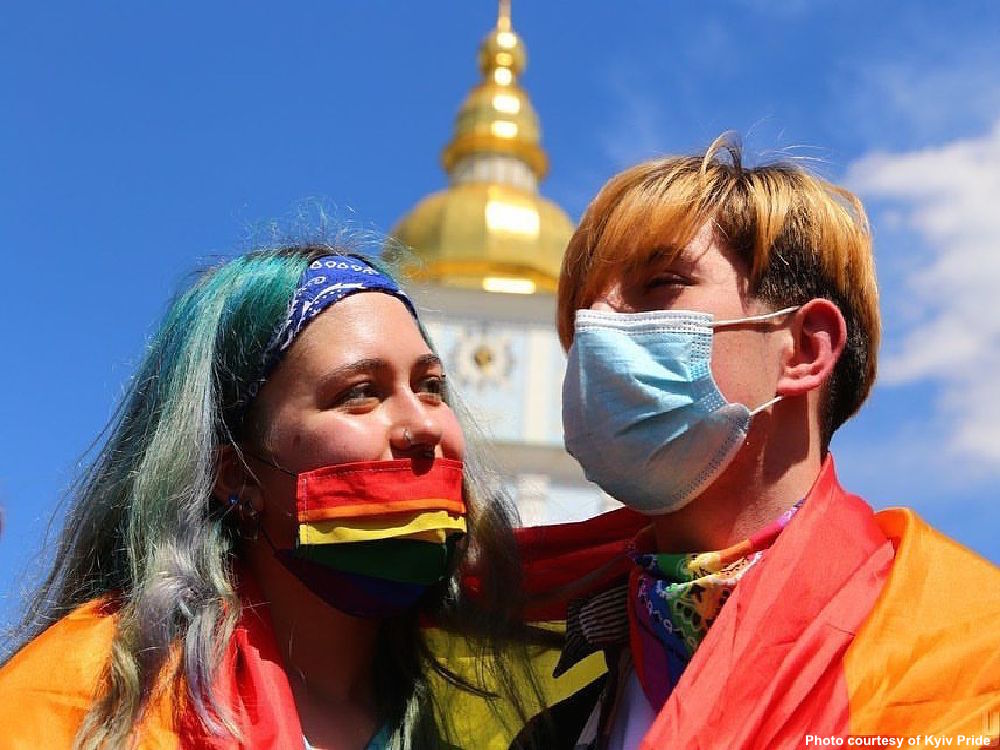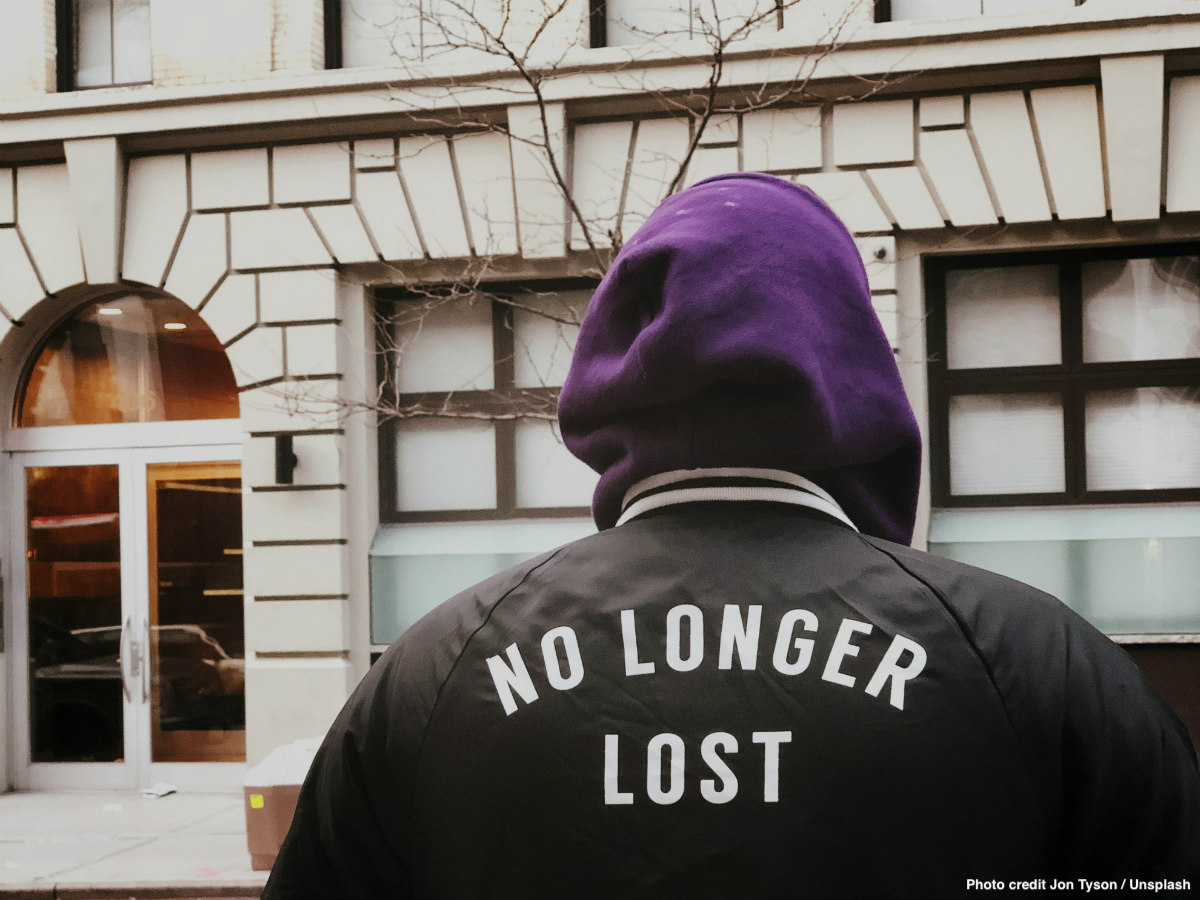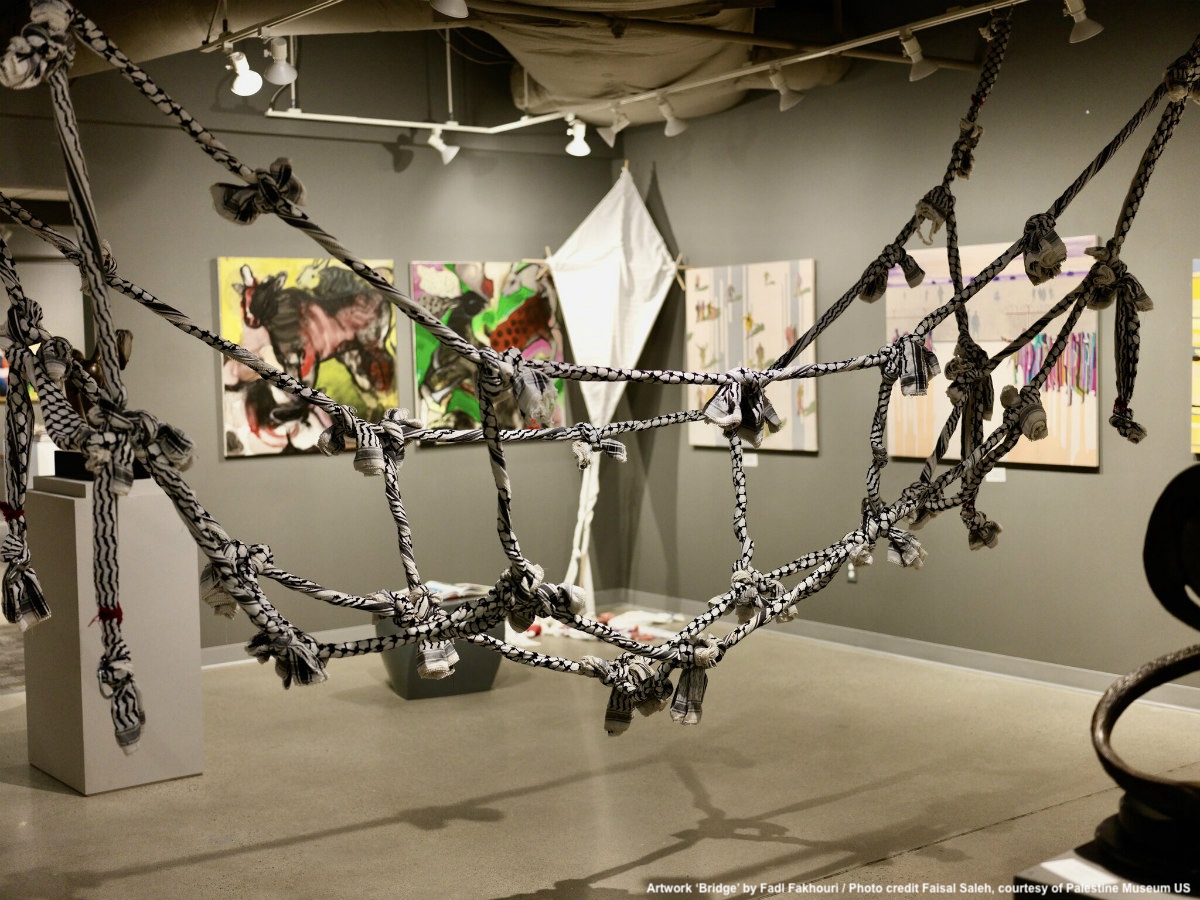These are times of war. The invasion of Ukraine is being covered in an unprecedented way, in part due to the shift in strategy to declassify information and more intelligence at a rapid pace to counter false narratives from Russia. In a way, the globalisation of information has served to deter the harassment of minorities by challenging stereotypes. Now at war, information has become instead a new battleground for the LGBTQ community in Kyiv to defend its rights.
Just one year ago an animated crowd was marching with colourful flags with the word “PACE” across Kyiv. Drag queens danced on the streets. Images of the Pride Kyiv corroborated the significant progress made in favour of LGBTQ rights in this city. Last year’s Pride congregated around seven thousand people compared to just a couple of hundreds in 2012, and that included press, opponents and a police force that refused to protect demonstrators at that time.
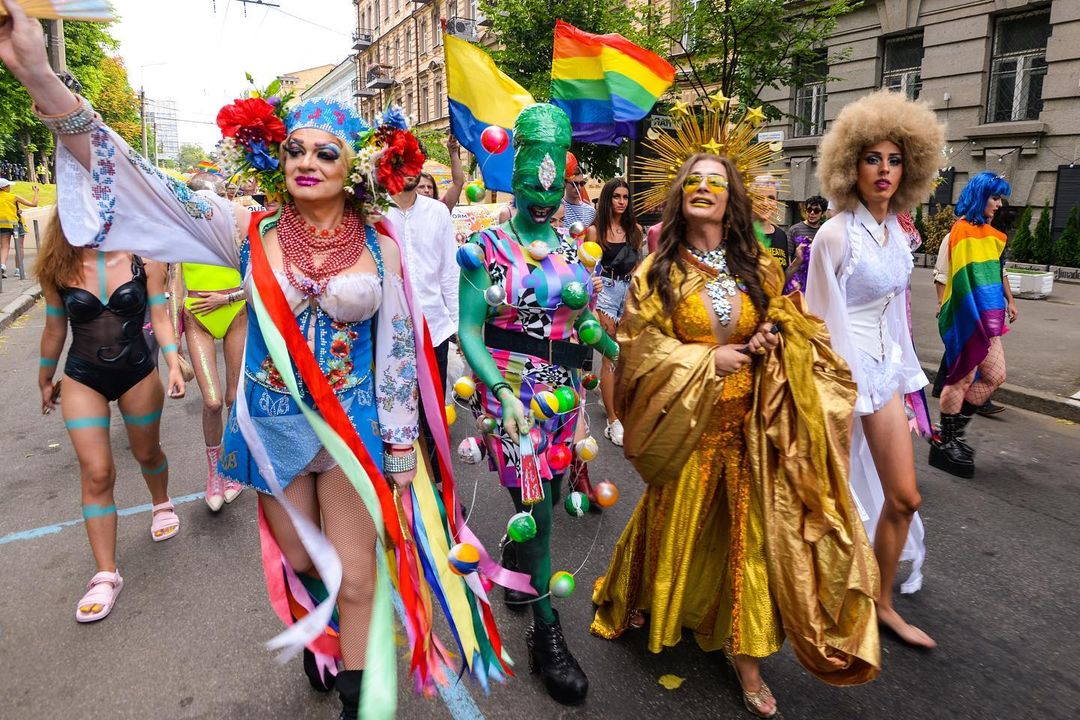
After the Maidan Revolution in 2014 Pride Kyiv began to grow and diversified with the attendance of activists, bloggers, family members and politicians. To the point that 2020 was the first year with no violence during the parade and in 2021 members of parliament joined in at a historical moment of solidarity. This has been the result of years of weaving an international network of support and “lobbying at home for a law that protects our safety, equal marriage and our rights for transition,” explains Lenny Emson, who leads Kyiv Pride, the largest Ukrainian association for LGBTQ rights.
Speaking to The Urban Activist from an apartment in Kyiv over Zoom, Emson talks about the real-life situation of the LGBTQ community in Kyiv and the veiled threat of information; disarmingly honest, with great seriousness. One day before I also spoke to Conrad Breyer, spokesman of Munich Kyiv Queer, their partner organization here in Munich.
In 2012 LGBTQ activists from Kyiv came to Munich determined to find support and solidarity for the disenfranchisement, persecution and abuse in their country. The encounter between the activists of both cities was instrumental for change towards LGBTQ rights in Kyiv. A lively collaboration of both grassroots organizations evolved between the lesbian, gay and trans groups of both cities, who are since then bound by friendship and the city partnership between Kyiv and Munich. Munich’s community work is all voluntary, now collecting donations to send to Ukraine and helping refugees to find accommodation in the city.
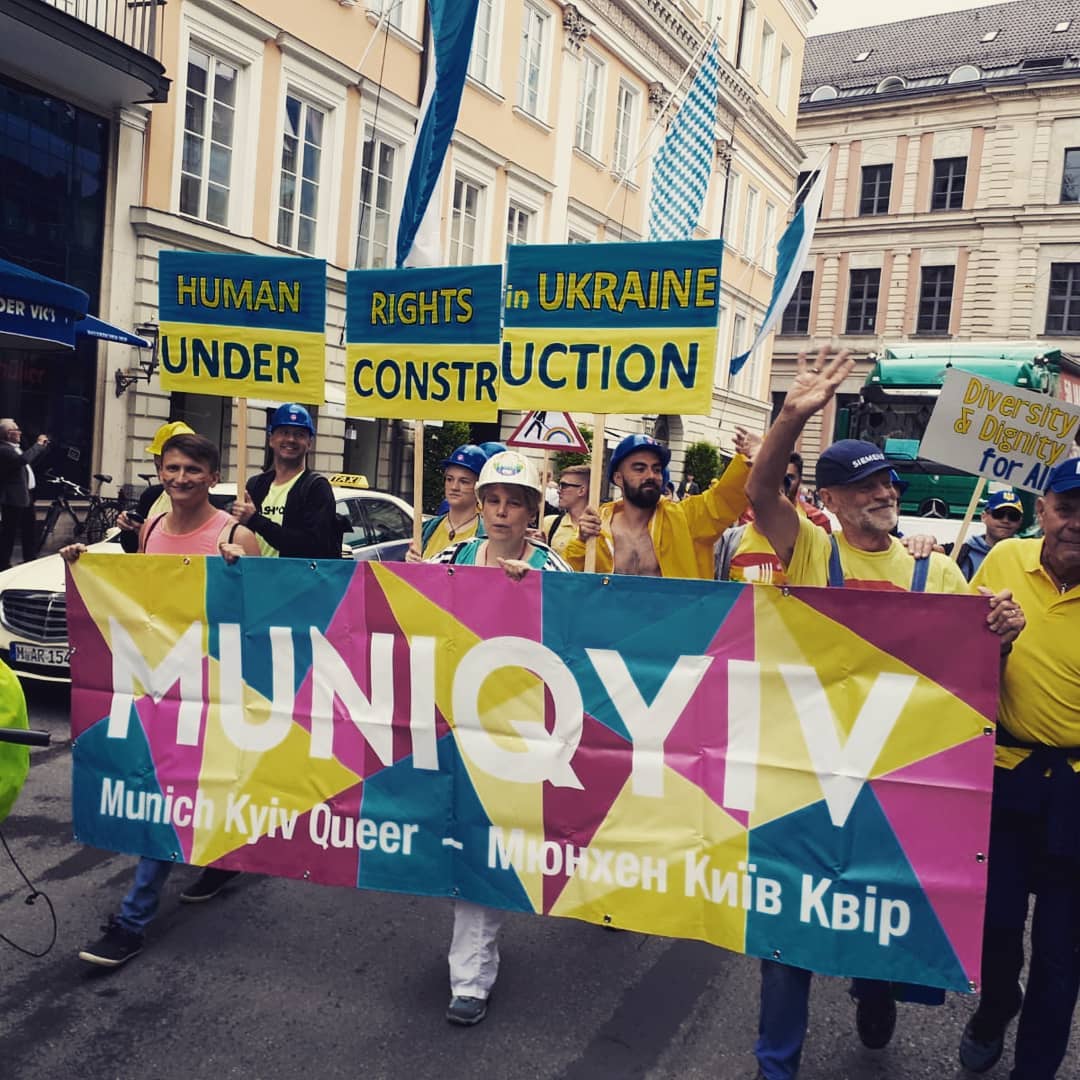
‘It has been ten successful years of cooperation with cultural events, workshops and the exchange of insights between the communities in both cities. It is true that, after the Maidan protests established democracy in 2014, we felt that people in Kyiv were closer to Europe. It was an exciting moment for us because we could contribute to the increase in acceptance and tolerance of LGTBQ rights in Kyiv,’ explains Breyer, whose husband is from Ukraine.
Kyiv reached momentum to introduce laws and policies towards LGBTQ rights and the number of LGTBQ organisations increased in the country. Two years later the annexation of Crimea and the Donbas region injected that kind of fear in the LGBTQ community that acts as the canary in a coal mine — people began fleeing Donbas to Kyiv after the introduction of pro-Russian and repressive laws.
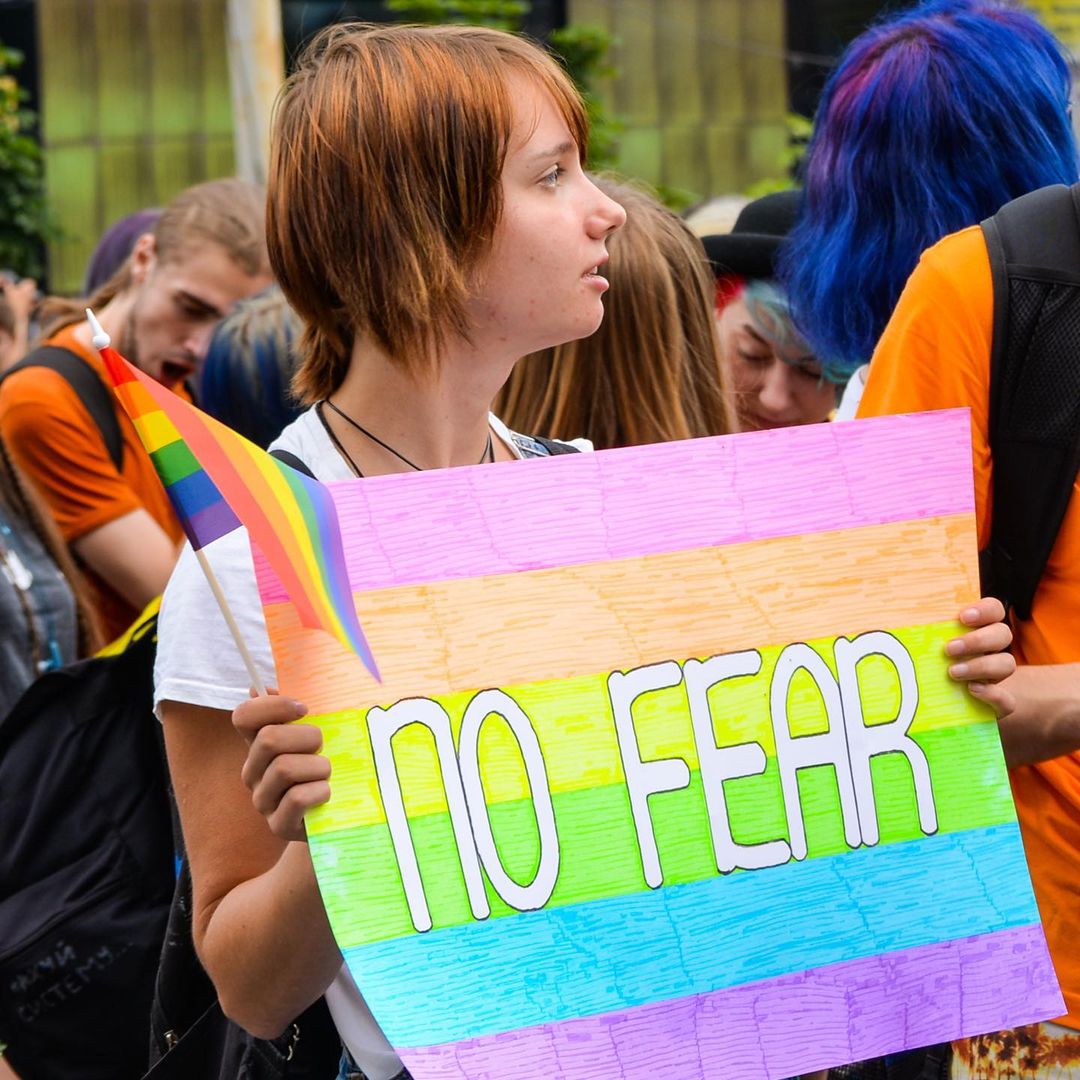
“We kind of foresaw what might happen to Ukraine. We have been observing Putin’s government towards gay rights and how the propaganda is raging throught the country. Our politicians in Germany were very naive,” says Breyer. In the meantime, Kyiv felt safer for Russian activists finding refuge in the city and saw it as a place to have a free life.
Of course, there is still a big space for improvement, and hate crimes against the LGBTQ community were still possible before the invasion but we had a good political field for our fight, explains Emson.
Who would have thought what Anton Krasovsky, a Russian TV personality kicked out for outing his sexual orientation live on air, said in an interview in 2015 would have become a reality seven years later: “It is better to be afraid to die, but fight anyway, than sit in a bomb shelter.” The New York Times reported some weeks after Russia invaded Ukraine that the war “has forced Ukraine’s LGBTQ movement to confront a threat not only to national sovereignty, but also to its own community. A pro-Russian puppet government, they say, would be less supportive of the LGBTQ agenda.” Pictures of brave LGBTQ community members prepared for combat went viral, but soon mixed messages on the internet regarding the situation of the LGBTQ rights in Ukraine, caused by a versatile morality in social media that can be turned against any act, started to do more harm than good.
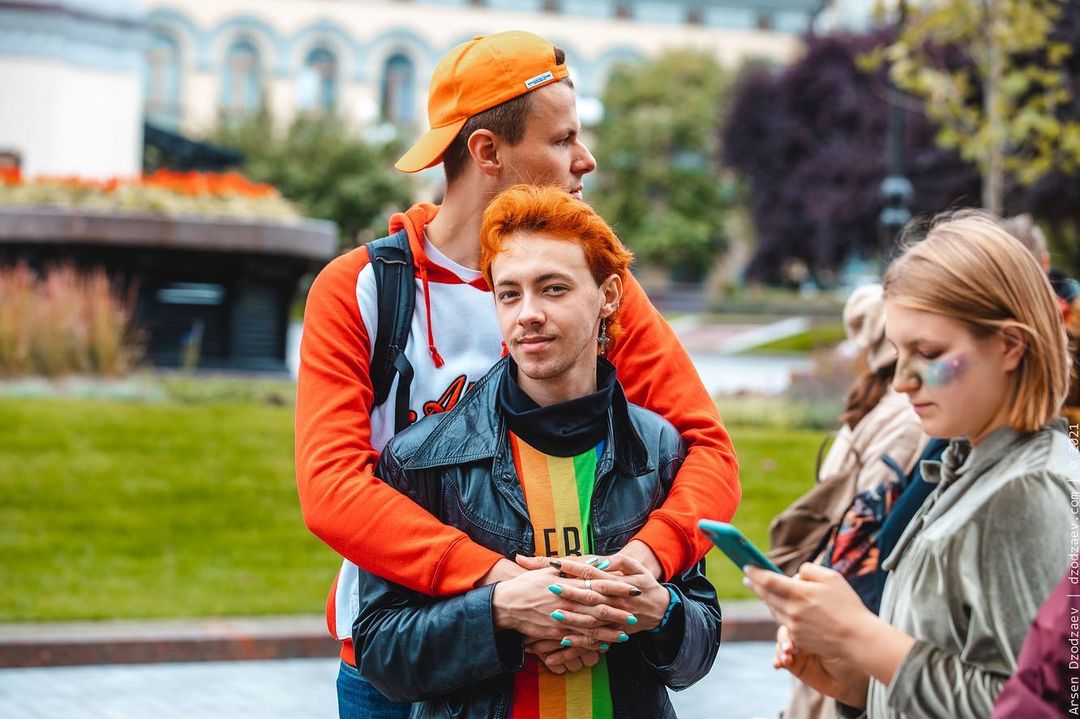
Some “international wartime media is spreading harmful disinformation,” claims Emson, information that portrays a government in Kyiv that does not protect LGTBQ rights, and emphasizes its hostility towards homosexuals and trans. Emson believes that this news comes from pro-Russian sources that want to put into question democratic values and freedom in Ukraine for an international audience. And sadly, the daily practice in social media of pointing out where good is missing means that some LGBTQ communities around the world have echoed those news. They denounce a presumably homophobic society in Kyiv, a hot trend that has reached the mainstream and that anyone can wield it but “is making the situation worse for us, and it is not helping,” claims Emson.
Information and social media are LGBTQ activists’ new battleground. They have been speaking to the media ever since the Russian invasion began, “but for some reason our voices are not being heard,” says Emson. “Online we have made a collective habit of boiling everything down to the figurative rest one person got and another didn’t,” says a compelling article on how social media has weaponized morality. At war this habit can become a minefield for the group or moral we try to “defend”. Although much of the West seems blind to this historic change, the sensitivity of the civic society in Kyiv towards the gay community, says Emson, has substantially improved and the new law shows a country is very supportive of our human rights.
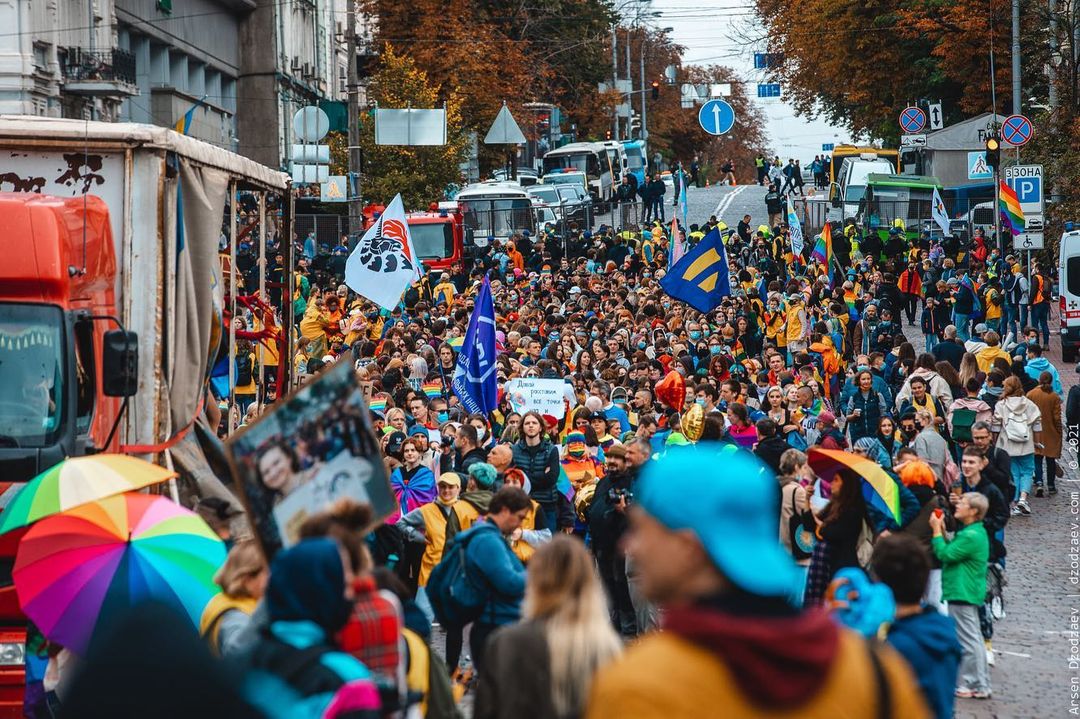
Yet we have also received “negative comments and threats from homophobic forces inside the country on social media that are trying to shut down the civil society that supports us. With rumours and fake news, they want to stop the help that we have been able to organise so effectively through our network of LGBTQ communities outside the country.” Their fear is that these homotransphobic organizations will leverage in the current nationalistic pride of the war to grow stronger, thereby forcing Emson and others to become invisible in Kyiv.
Emson tells me that they have also received messages of support from LGBTQ communities around the world but disappointingly not from Moscow that seems to “have appropiated their own abuse: if something silly or stupid or weird happens in Europe, it’s derided as “Gayropa””. But this time it is not the West craving for the liberal order, rather a brutal battlefield that is starting to tell a different story.
